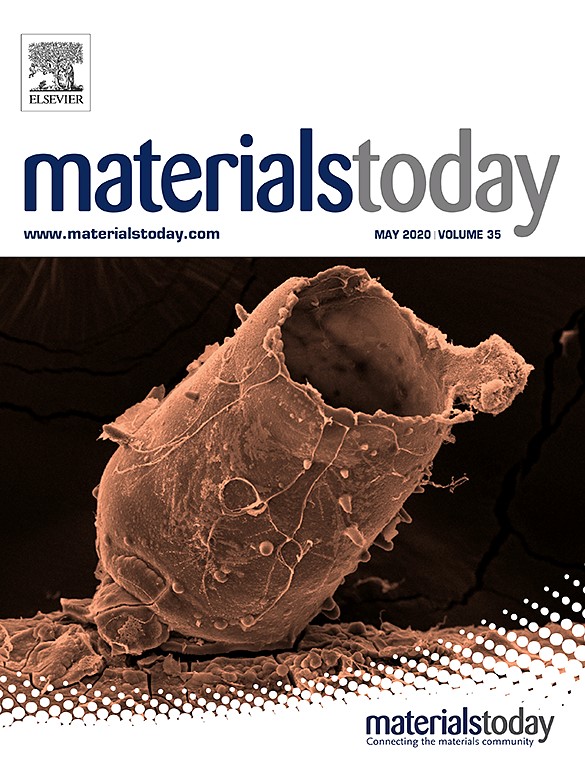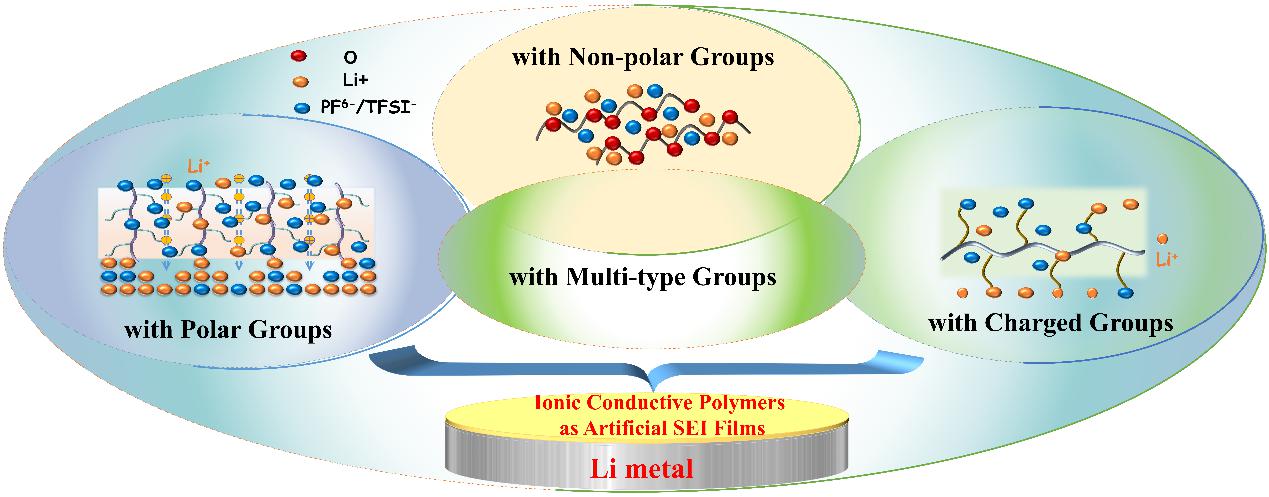
Title:Ionic Conductive Polymers as Artificial Solid Electrolyte Interphase Films in Li Metal Batteries – A Review
Publication:Materials Today, (2020), https://doi.org/10.1016/j.mattod.2020.06.011![]() pdf
pdf
Authors:Shilun Gao, Feiyuan Sun, Nian Liu, Huabin Yang,* Peng-Fei Cao*
Abstract:
Lithium (Li) metal has been considered as the ultimate anode material for next-generation rechargeable batteries due to its ultra-high theoretical specific capacity (3860 mAh g-1) and the lowest reduction voltage (−3.04 V vs the standard hydrogen electrode). However, the dendritic Li formation, uncontrolled interfacial reactions, and huge volume variations lead to unstable solid electrolyte interphase (SEI) layer, low Coulombic efficiency and hence short cycling lifetime. Designing artificial solid electrolyte interphase (artificial SEI) films on the Li metal electrode exhibits great potential to solve the aforementioned problems and enable Li-metal batteries with prolonged lifetime. Polymer materials with good ionic conductivity, superior processability and high flexibility are considered as ideal artificial SEI film materials. In this review, according to the ionic conductive groups, recent advances in polymeric artificial SEI films are summarized to afford a deep understanding of Li ion plating/stripping behavior and present design principles of high-performance artificial SEI films in achieving stable Li metal electrodes. Perspectives regarding to the future research directions of polymeric artificial SEI films for Li-metal electrode are also discussed. The insights and design principles of polymeric artificial SEI films gained in the current review will be definitely useful in achieving the Li-metal batteries with improved energy density, high safety and long cycling lifetime toward next-generation energy storage devices.
TOC:

